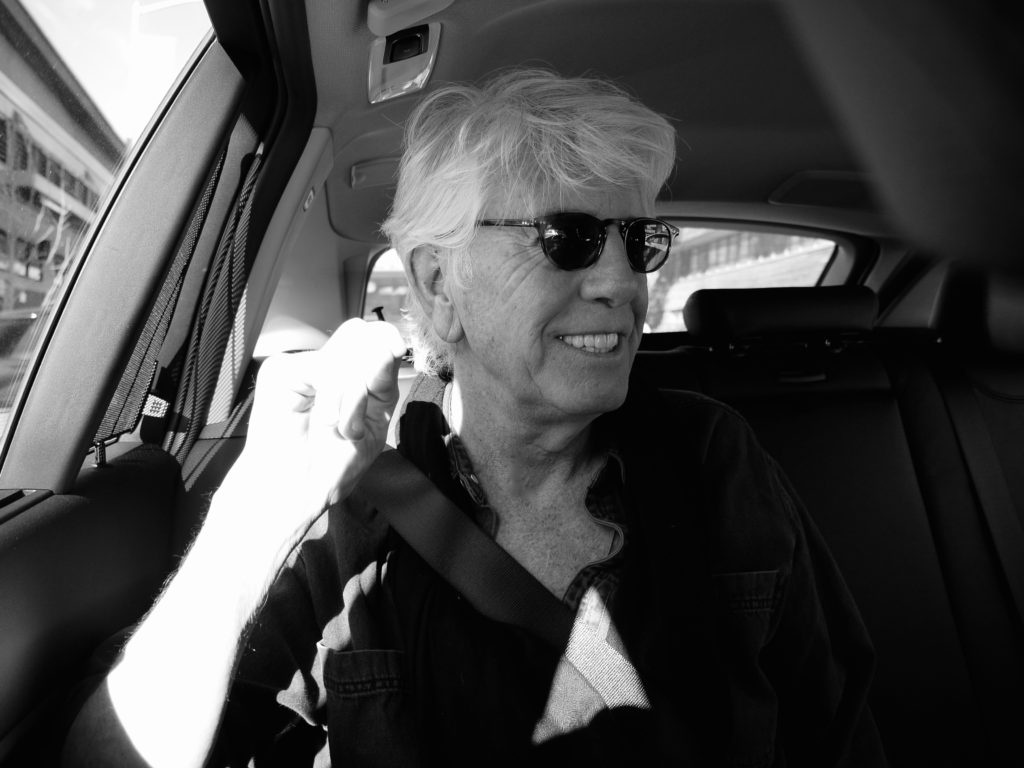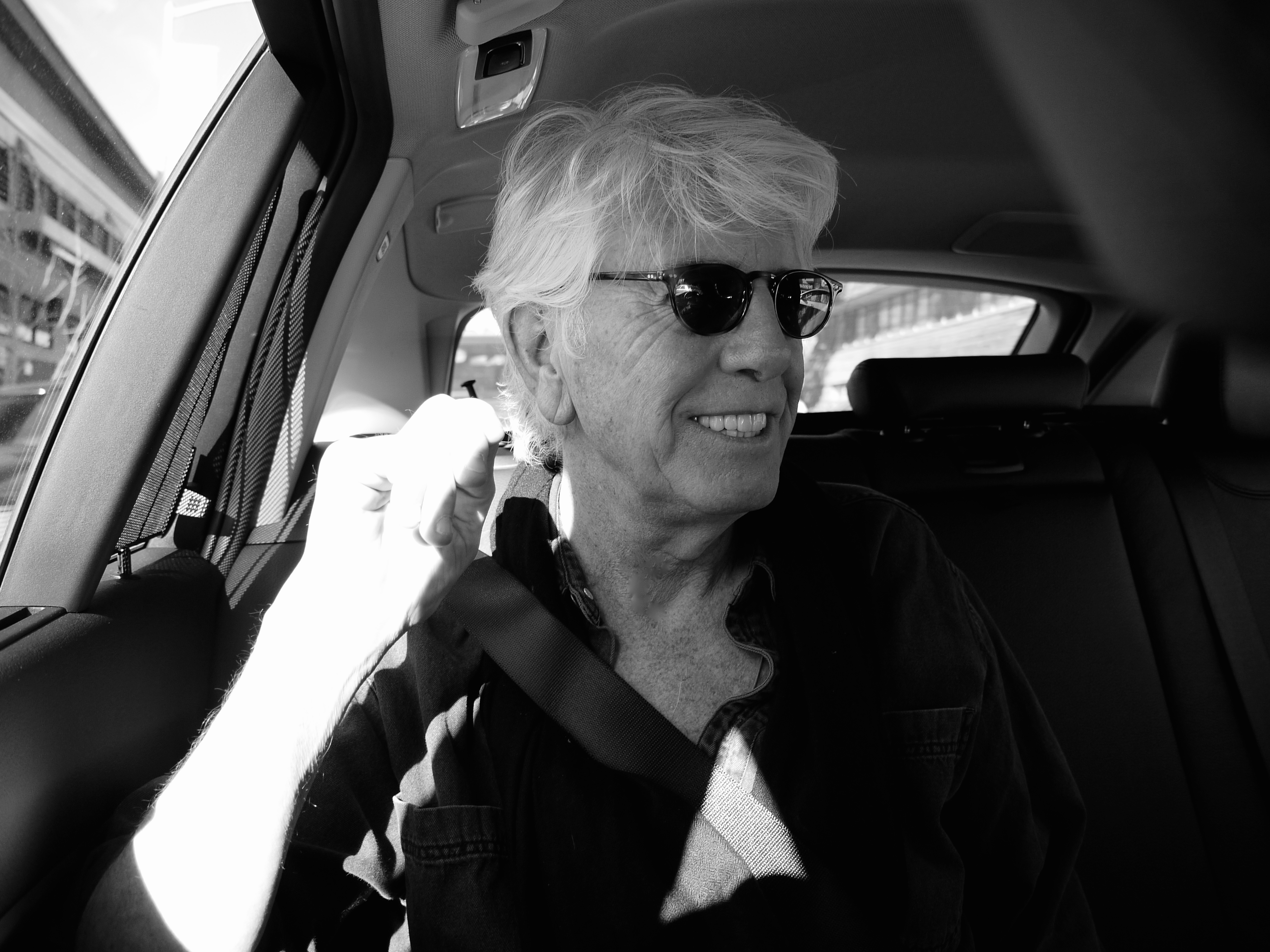
By Jeff Maisey
From his early days as a member of British Invasion pop/rock band The Hollies in the 1960s to a lifelong career of social activism and songwriting as a member of Crosby, Stills & Nash and beyond, Graham Nash has remained a people’s favorite.
Nash penned songs include “Our House,” “Teach Your Children,” “Marrakesh Express,” “Immigration Man,” and “Just a Song Before I Go.”
In advance of his March 9 appearance at Ferguson Center, Graham Nash called from his home in California for the following interview.
VEER: Back in 1972, you and David Crosby released an album that included your song, “Immigration Man.” The general topic is in the news these days again in both Europe and America. I’m wondering if you might share your tale of immigrating from England to the United States?
NASH: There were great disputes between the British musicians union and the American musicians union. I had to wait hours at the American embassy in London waiting for a visa.
When we got back from Woodstock and everybody did the Dick Cavett Show with Joni (Mitchell), Stephen (Stills) and David (Crosby) were allowed to be on television but not me.
Once again strange rules between both unions.
One of the things that is quite interesting to me is just how relevant a song like “Immigration Man” is today as you mentioned. It’s astonishing that the same things are in play now as they were almost 50 years ago.
VEER: When you, Graham, look at America’s current immigration issues as well as those of European countries, what are your thoughts when you look at the entirety of people seeking to relocate to a completely different land with a vastly different culture in some cases?
Nash: Well, particularly in America I completely understand it. This is a great country. It has great opportunities. It has its failings, obviously, and we could go on for hours about those. But basically, a lot of people want to come here to find the American Dream of working hard, taking care of your kids, and eating reasonably well.
I’ve been around the world several times in the last two or three years and I have been very disturbed by the rise of the right wing; particularly fear-based politics is rampant here in America. Having watched Trump’s speech last night, I realized he’s using fear and division to completely rule this country. That’s what’s going on and I can’t wait for Robert Mueller’s report to come out…The truth is Watergate took four or five years.
VEER: Songs of protest in many ways defined your career. There were also many pop recording artists in the 1960s and ‘70s that had powerful songs of protest. When you look at today’s pop music culture there doesn’t seem to be the same level. Certainly, there is no shortage of things to protest. Why do we as a creative culture not have that same sense of expressing outrage through music?
NASH: It’s because the media have learned. They realized during the Vietnam War when the American people were given the number of Americans dying in war whilst they were eating their dinner watching Walter Cronkite that you cannot upset the people because they will rise and destroy the status quo and start to rock the boat, which is exactly what they don’t want.
For instance, you never saw much of that so-called war in Panama or in Grenada. You couldn’t photograph the flag-draped coffins of the soldiers that had been killed in Afghanistan and Iraq.
The media has learned to not let the public opinion get too crazy. That’s what’s been going on all this time. Just lay down — you’ve got the Kardashians to see on television and a nice McDonald’s burger to eat; we’ve got you completely under control. That’s what’s going on in this world right now. Let me sell you another pair of sneakers and another Coca Cola and you’ll be just fine.
VEER: Candidate Trump as well as President Trump has been great for the ratings of cable television news outlets. Is this 24-hour cycle of “breaking news” where the report is “all Trump, all the time” part of the same distraction or is it something all-together different?
Nash: This is completely different, I think. You know it’s very easy to equate this situation with Watergate, but in Watergate at least Nixon had a small brain and a small heart. I don’t believe Donald Trump gives a damn about anybody but Donald Trump.
I think his presidency is a gigantic mistake. The fact is 48 percent of the people that were eligible to vote in the 2016 election did not vote.
There are countries throughout the world where if you vote you take the risk of being killed. When you put your finger into that purple ink to show that you voted, then the next thing you know half your family has been assassinated.
My point is that for 48 percent of the people not to vote in a presidential election is criminal.
VEER: Graham, your song “Teach the Children” is ageless. Did the Baby Boomer generation, of which you are part, teach their children well?
NASH: Well, we certainly tried and I’m certainly trying my best now.
When I saw what happened at the Parkland school in Florida with the shooting, and I recognized the energy of those kids who are taking it upon themselves to get people to vote and implore people not to support politicians who take money from the NRA…that energy caused me to do a new video for “Teach Your Children,” which is on Youtube right now. It’s quite a powerful piece.
The answer your question is that we will always try to make the world a better place for our kids and grandchildren.
VEER: Your current tour that brings you to the Ferguson Center is a mix of storytelling and songs. What do you personally enjoy about this format, which is more of an intimate experience that a big rock concert?
NASH: I’m always trying to reach out to people and investigate what’s going on in the world. I’m a very curious man.
We just have to deal with life as truthfully as we can. I’m almost 77 now, and I realize I’m on the downward slope of my life. I expect to live for another 50 years, but the truth is I might drop dead in the middle of this conversation. My point is we need to use every single second the best way we can. I’m 100 percent inclined to do that.
VEER: You might be halfway to where you’re going.
NASH: From your mouth to God’s ear.
VEER: Looking back at your career, what was your favorite period? Was it starting out with The Hollies, Crosby, Stills & Nash, or your solo career?
NASH: Yes, the first time I heard the Hollies’ record come out of the radio while walking on a street in London was an incredible experience.
The first time I heard me, David and Stephen sing together was obviously an incredible experience.
“Ohio,” that we did with Neil (Young), was an incredible experience.
I’m a lucky man. I keep having great experiences and I have no intentions of quitting.
VEER: The members of Crosby, Stills, Nash and Young have somewhat famously struggled to get along. This isn’t news, of course. But in hindsight, does it remain an opportunity lost for you?
NASH: I will always miss the music. I think what CSN and CSN&Y did in the last 50 years was make some really fine music. If we never made another note of music look at what we did in the last 50 years.
VEER: You were acquainted with and on equal footing as members of The Beatles, Rolling Stones, Jimi Hendrix and so many others. What was that experience like for you in the Woodstock era?
NASH: We were just lucky to get out of having to do what your dad did and your grandfather did. They went down the mine or into the mill — that’s what you were supposed to do. My mother and father, fortunately, didn’t let me fall for the gold watch theory where you work for a company for 50 years, and then when you’re 70 they give you a gold watch and then get someone cheaper, younger, and stronger in your place.
My mother and father encouraged and recognized my passion in music and is the very reason why I’m talking to you right now.
VEER: My family immigrated from Upton-on-Severn, a bit south of Salford where you’re from. I’m curious, what was is like for you to meet Queen Elizabeth II in 2010?
NASH: I felt ambivalent. Obviously there are many people who think that the royalty is a thing of the past and should be abolished, and at the same time I’m looking at the Queen and realizing that there is the DNA of a thousand years of English kings and queens. It’s quite impressive, I must tell you.
I had a really lovely conversation with Her Majesty and I kept thinking of how proud my mother and father would have been at that moment.
VEER: Your most recent studio album is “This Path Tonight” (2016). Where do you see yourself on your musical journey on your path into the future?
NASH: I’m here doing the best with my life the best that I can. It’s that simple.
As I told you I’m a curious man. I’m a creative person.
These shows that I’m doing with Shane Fontayne on guitar and Todd Caldwell, who is our keyboard player in the Crosby, Stills & Nash band, we’re having a great time. The shows are well-attended. People are smiling on the way out.
The one thing I want them to know is that I wanted to be there making music for those people. I’m not phoning it in. I’m singing every song as if it’s the last time I’ll ever sing it.
WANT TO GO?
Graham Nash
March 9
Ferguson Center




